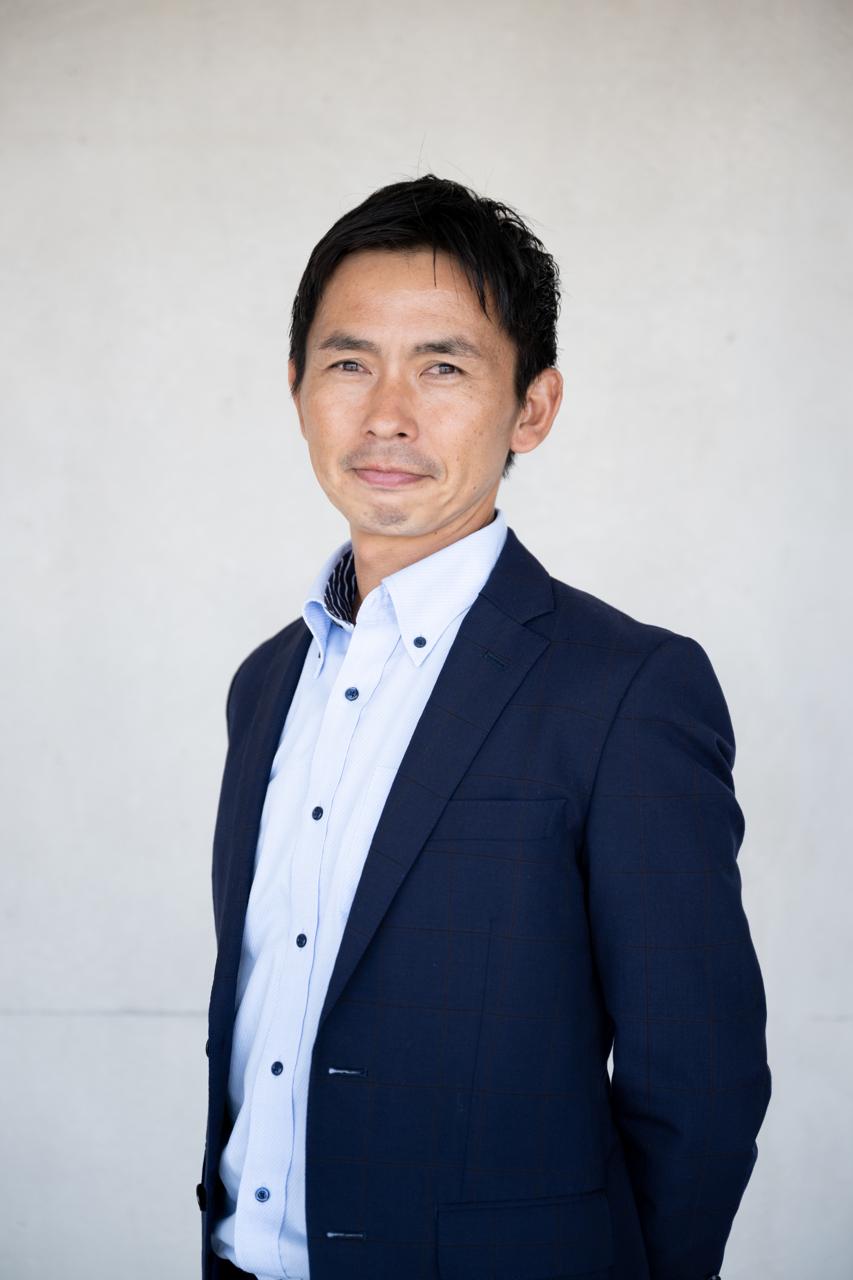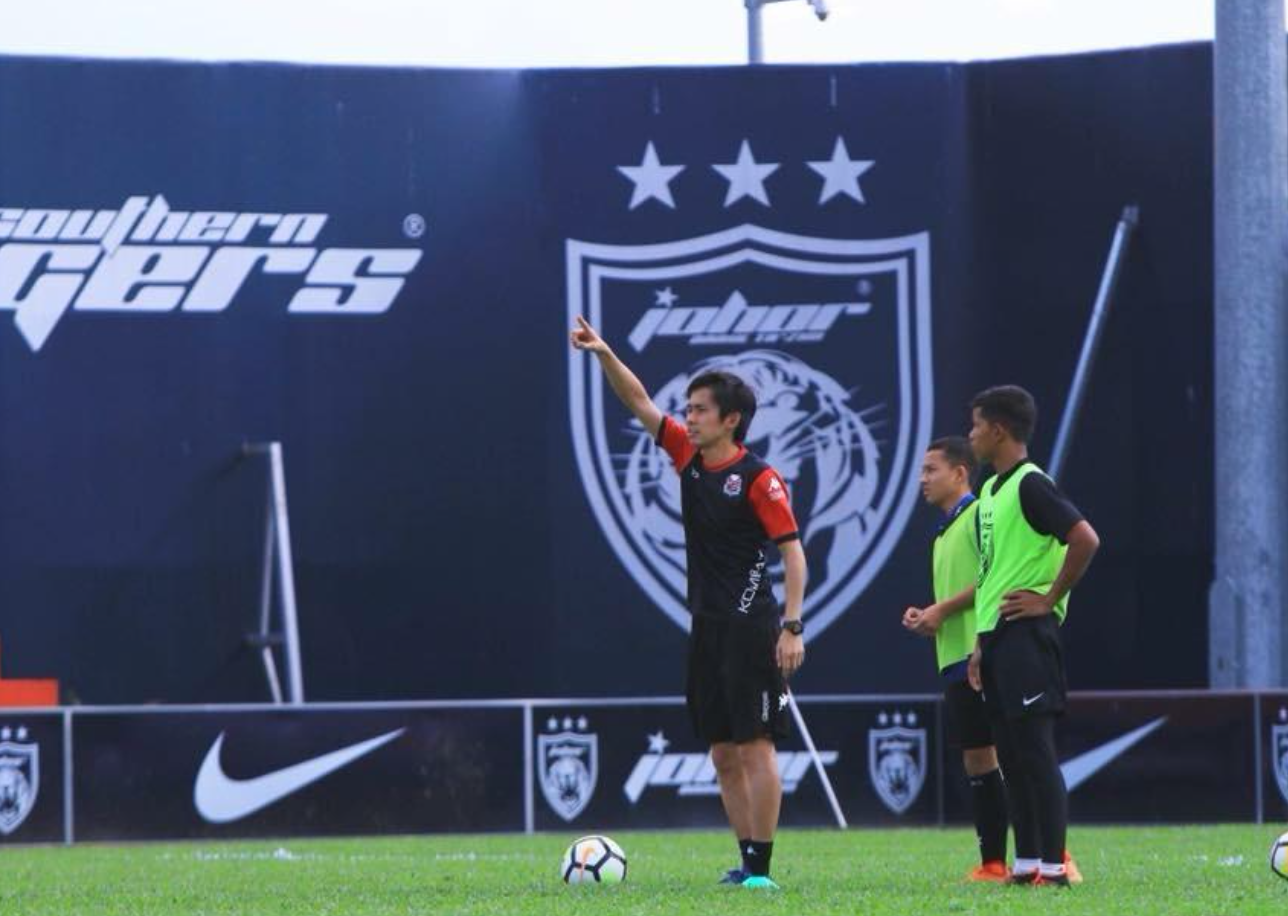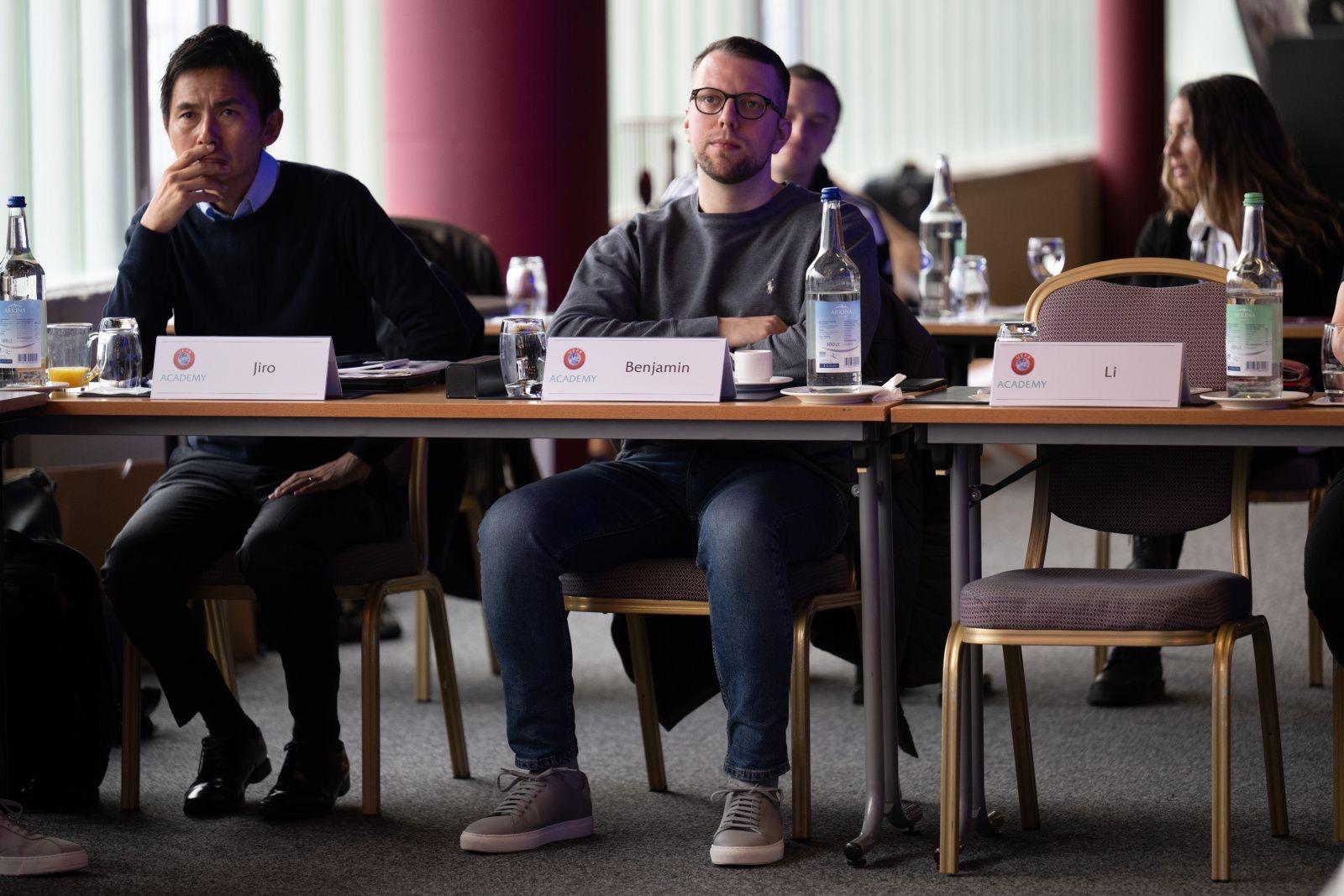Japanese football is hotter than ever before. There are dozens of Japanese players playing key roles in Europe’s top leagues, including stars like Take Kubo and Kaoru Mitoma. According to Transfermarkt, Japan is the 18th most valuable national team by player value - over €100 million ahead of the next Asian team, South Korea.
They have become a model for player development and are one of the most likely nations to finally break the Europe/South America duopoly and win a World Cup (something they’ve already done on the women’s side).
Jiro Kitahara has spent his whole life in football. Starting as an analyst at J-League club Júbilo Iwata, he’s gathered vast experience as a coach, coach educator and academy director at the Japanese FA and several professional clubs.
Today, he’s Head of International Sporting Strategy at FC Tokyo. In this interview, he tells me about football in Japan, creating pathways to top leagues and FC Tokyo’s goal of becoming a global club.
The interview has been condensed and lightly edited for grammar and clarity.

[ Background in football and getting started as a coach ]
I played as an amateur footballer until I was 22 years old, unfortunately I couldn't become a professional. I played football at Tsukuba University, a university famous in Japan for sports science and football coaching. I wanted to be a coach but without a career it was difficult to work at a professional club as a coach! Instead, I studied to be an analyst and with a little bit of luck, I started my career working for a professional club when I was 23.
I worked with a lot of coaches from all over the world, of course many Japanese coaches but also from South America, North America, Europe. I learned a lot about football from them. Sometimes what is ‘common sense’ for a Brazilian is not the same as someone from the Netherlands or Japan. From my point of view, this depth of understanding on the tactical and mental side of things was really important to my career.
After that experience, I became an academy coach, then an academy director, coach educator and here I am now.
For coaches without a professional playing career, it’s not easy but I think the possibility is more open compared to some other countries.

[ How has football in Japan changed throughout your career? ]
It has changed a lot in the last 20 years.
In the 2002 World Cup team, only 4 players were playing in Europe - now almost all the players at the last World Cup are playing in Europe. There are almost 100 Japanese players playing in Europe now.
For many years, discipline, diligence, hard work and high technical skills have been a strong point for Japanese players and are highly regarded by many European clubs. More recently, physical ability, especially power and speed has improved and players’ confidence has grown - they are able to perform well at the highest level.
Many young Japanese players in particular have clearly set the realistic goal of succeeding in Europe, especially in one of the big five leagues in the future, so many of them are already mentally prepared. I think that's why the number of Japanese players who are active in Europe is increasing dramatically.
[ Coach and player development in Japan ]
Coach Education
The system is wonderfully organized. Like in my example, I got the pro license - the door is open to everyone even those who have no professional experience. Many coaches are not only eager to obtain licenses, but also to undergo re-education. As a result, coaches in high school and university also become excellent coaches.
In 2022, the Japanese Football Association (JFA) announced Japan's Way, and many amateur coaches use it seriously as a textbook and guide.
Japanese coaches like very detailed preparation - working on every detail seriously, like folding origami.
Many coaches give importance to the mentality of their players - especially focusing on discipline, cooperation, dedication and sacrifice to the team. Instead of providing answers, the emphasis is on teaching players how to find solutions within a game model or way of playing. As a result, we’ve been able to develop many players who can perform and contribute to the team.
Why haven’t Japanese coaches been as successful as Japanese players in making the jump to Europe?
There’s probably a few reasons. One is simply a language problem, most Japanese coaches don’t speak English well and that’s a barrier. I think also, many Europeans don’t know about or have any exposure to Japanese coaches or their coaching philosophy. And of course, there’s a problem with visas as well, they can be difficult to get!
I think Japanese coaching styles and values like the emphasis on hard work and teamwork have a lot of positives and can work well in Europe.
Player development
One of Japan's great strengths is that it develops talented players not only from professional team academies but also from high schools and universities.
The JFA has set up an excellent game environment all over Japan from under 12 to under 18. So even high school teams have a great league structure to play competitively. For example at under 18, we have two big leagues in the east and west of Japan - a lot of high school teams take part in these leagues alongside professional academies. This experience is so effective for players in a non-professional academy team.
In addition, we know many Japanese players can develop at a later age. I think if we don’t have a good environment for players from 18-22, we will miss out on developing some very good players who are not physically or mentally ‘ready’ at a younger age. Players like Kaoru Mitoma at Brighton and Junya Itō at Reims are examples of players who played in university and were ‘late’ to become professional footballers at 22.
Finally, in my view, we have a lot of good coaches at local levels and in high schools and universities. Of course, we have professional academies for elite players but even if a player isn’t in a professional academy, they won’t drop out of the system and will still have the support of good coaches. This means we have a lot of potential players who can develop a little later and become professionals.
"One of Japan's great strengths is that it develops talented players not only from professional team academies but also from high schools and universities"
[ Can you share a little about your education and the UEFA certificate you received recently? ]
I got a master's degree in football coaching at Tsukuba University and later, in parallel with my pro career, I attended a doctoral program at Chukyo University but didn’t finish. I also hold the Pro Coaching License from the JFA.
Last year, I got the UEFA Certificate in Football Management (CFM). I learned a lot about strategic football management there.
It was a one year program and we had three modules. It was a mixed program with face to face and online, so everyone could take part and we didn't have to stop our careers. It covered topics in football management, everything from on-pitch to the business and commercial side of things. Also for example, environmental issues and financial topics.
I’ve learned a lot about what happens on the pitch in my career - through the pro license and my coaching experience - but, to be honest, I’m not good at the business side. Things like sports law, the financial side, environmental or social issues in Europe for example. I needed to learn a lot about these topics because they are all important to creating a strategy.

[ What is your role as Head of International Sports Strategy? ]
My goal is to implement strategic football management to ensure that FC Tokyo achieves its vision of becoming a global club - this requires the development of the entire club.
I have four big roles.
1. To build a pathway to Europe for players to aim for, and achieve high goals
First of all, we are working on creating a network in Europe. Many Japanese clubs have little information about European football. We focus on communicating (with European clubs) a lot to get as much information as possible. We are also expanding our ‘partnered’ clubs, this will allow us to build different, effective pathways for young, high potential players.
2. To build an updated game model
We are currently reconstructing the football philosophy at the club, and I am the chief of that working group. We are trying to play football that we can be proud of in Europe.
3. To develop great coaches
We would like to develop great coaches for developing great players in our academy. Fortunately, there are already many high potential players in FC Tokyo's academy.
To achieve this, we are rebuilding the coaching development system. If we can do this, we will be able to develop players from the academy who can play well at the level in Europe.
4. To create a second team
By creating a good game environment, young players can prepare to play professionally.
However, under the current J-League rules, we cannot have a second team and participate in other leagues.
It’s important to craft a strategy that can align with all of these goals. We want to win the domestic league and become a global club - but these are not necessarily in the same context. For example, to win domestically, you want to develop the best players for the Japanese league and keep them for a long time, while selling young, high potential players to big clubs is more aligned with becoming a global club.
It’s really important that we connect these goals to our overall strategy. It’s important for me, the CEO and the General Manager to have a clear vision and always ask ourselves, ‘is this suitable for winning domestically?’ or ‘is this suitable for developing players who can be competitive in Europe?’
I got a lot of fantastic ideas from the UEFA certificate and I’m always improving.
[ Why is it important for FC Tokyo to become a global club? ]
We want to prove the potential of Japanese players and Japanese football.
Japan has the potential to be successful in Europe - not only as players, but also as coaches and directors. Almost all young players have a dream of playing in Europe - we want to help them achieve their dream.
In terms of football business and for sustained success, we are also trying to make big profits on transfers and/or through sell-on fees for future transfers. Of course, transfers to the Premier League are the most profitable - so we are ultimately aiming for that.
"Japan has the potential to be successful in Europe - not only as players, but also as coaches and directors"
[ You have several partnerships with European clubs - what does ‘partnership’ mean? ]
First, if there are clubs who want to partner with us - it’s easy to send me a message on LinkedIn!
There are different types of partnerships, they don’t all have the same agreement. For example, with different clubs it might be based on sharing scouting networks or creating a pathway for Japanese players or sharing game environments with them (e.g. sending players on loan) or working together in the transfer market. So each one is different.
[ Is there support from the JFA for FC Tokyo’s mission to become a global club? ]
It’s an interesting question, there are different problems and contexts.
The JFA wants to build a great national team - so they want to send players to Europe as early as possible. At the same time, if every good player goes to Europe, the Japanese league will suffer. As a club, it’s important to get the best transfer fee possible, for the transfer of talented players. On the other hand, agents may try to transfer players, based on a different way of thinking than ours.
It all depends on the quality of players and that’s why creating a pathway is very important for each player. For example, for very, very talented players - they have to transfer early - some can join a club in a top 5 league already at 18 or 19 because they have great potential.
Of course, we can’t manage a player’s whole career either, though...
[ What are your goals for FC Tokyo and your own career? ]
There are two big goals for the club - to become J-League champions and to become a global club.
To achieve these goals, we need to develop excellent players, create an outstanding team culture, create a clear growth strategy, earn large transfer fees and for our players and staff to be successful in Europe.
As a personal goal, I want to be successful as a technical director in Europe in the future. To achieve this, I want to succeed in implementing successful strategic football management.
